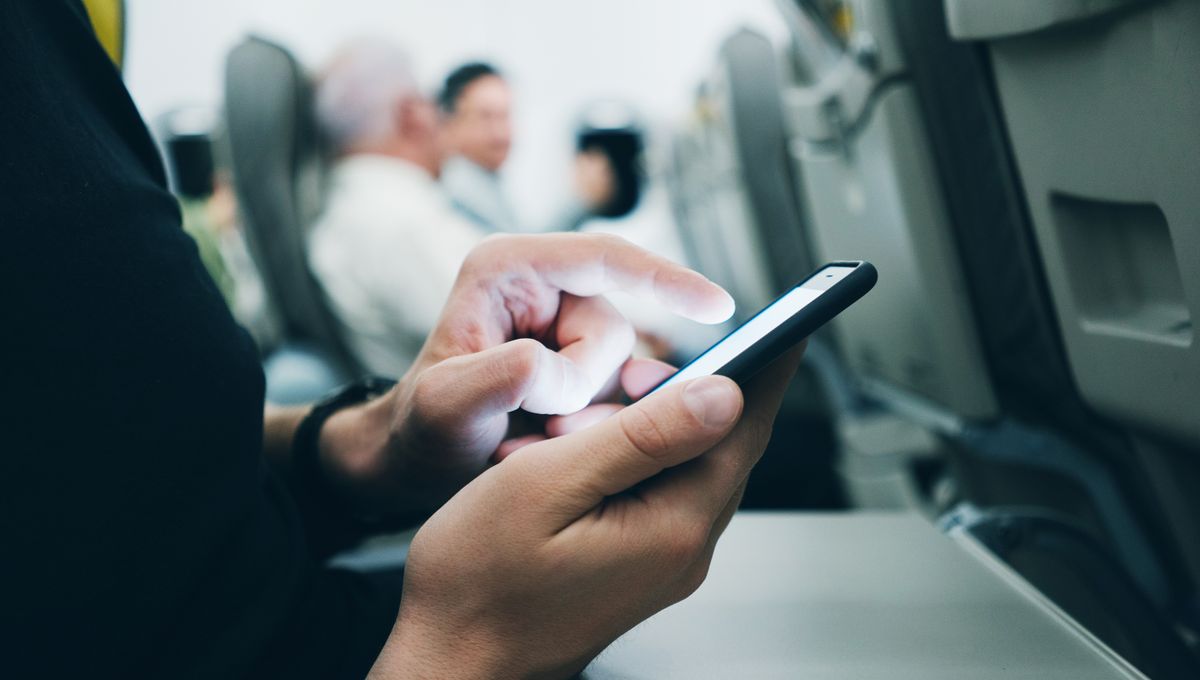
Just like smoking on planes and people dressing smartly for their flights, “airplane mode” has been consigned to aviation history in the European Union (EU). So why is it still a thing in the US and many other parts of the world?
In 2022, the European Commission issued new rules that said carriers can allow passengers aboard flights in the EU to use their mobile phones to make calls, send messages, access social media, and stream videos. Bear in mind that it’s ultimately up to the airline provider to call the shots and decide whether to permit these activities, but the EU decision hopes to make it an opportunity they can explore.
Conversely, the US Federal Communications Commission still sticks to the rules introduced in the 1980s and ‘90s that outright banned mobile telephone calls during air travel. People can still play around with their phone, but it must be switched onto “airplane mode”, which cuts off the device’s wireless communications.
It’s often said that mobile phones emit electromagnetic signals that could, in theory, interfere with an aircraft’s navigation and communication systems. If an airplane’s communication equipment is suffocated, it could stop the pilot and crew from effectively sending and receiving vital messages. Many cockpit instruments that are key to safety, like their GPS receivers, also rely on electromagnetic signals that risk being meddled with.
Indeed, plenty of pilots have claimed that they believe they’ve experienced distorted and irritating sounds through their headsets that are the result of mobile phone users onboard.
However, there is some debate about the seriousness of the threat. Some researchers and engineers think it’s a big deal, but others not so much.
Planemakers Boeing and Airbus have reportedly tested the effects of mobile phone signals on aircraft avionics and they have found no significant impact. They concluded that mobile phones do not operate on the frequencies used by aircraft systems, meaning they do not interfere with critical avionics.
In 2005, a representative of the Federal Aviation Administration testified before Congress, noting that advancements like pico-cells could potentially address concerns about interference with aircraft communication equipment, raising questions about the necessity of blanket in-flight phone bans.
Besides the fact that a plane crash has never been directly attributed to mobile phone use, no peer-reviewed studies have found a definite link between phone signals and disruption to aircraft systems.
There is, however, some better evidence that flying phone calls could cause problems for networks on the ground. At cruising altitudes, a cellphone can connect to multiple cell towers on the ground, leading to network congestion and potentially disrupting service for Earth-bound customers.
Aware of this issue, the EU’s new system will use frequencies that have been specially designated for in-flight 5G technology, meaning it won’t have any overlap with the ground-based 5G mobile network.
It’s not crystal clear why the US hasn’t followed their lead and adopted similar systems yet. Some have speculated that authorities are concerned about loud-mouthed callers raising the risk of air rage, while others fear that passengers will be distracted from safety briefings.
Alternatively, it may simply be that change takes a long time to occur within large, bureaucratic organizations like the Federal Communications Commission and the Federal Aviation Administration.
“The US is very conservative in this way. My guess is that they’re waiting for data somehow to prove that there’s no risk,” Richard Levy, an aviation consultant and former pilot, recently told Popular Science.
Regardless of your personal stance on using a phone while flying, it’s advisable to stick to the law of the land (or air) you’re traveling through, as well as the rules set by the airline company you’re flying with. Back in 1999, a 28-year-old man from the UK was sentenced to 12 months in prison after repeatedly refusing to turn off his mobile phone during a flight from Madrid to Manchester.
Source Link: "Airplane Mode" Is No-More In EU, So Why Are Phone Calls Still Banned On US Flights?